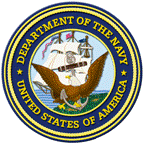United States Department of Defense

United States Navy: Publications
Date of this Version
5-2-2017
Citation
[House Hearing, 115 Congress] [From the U.S. Government Publishing Office] [H.A.S.C. No. 115-41]. HEARING BEFORE THE SUBCOMMITTEE ON MILITARY PERSONNEL OF THE COMMITTEE ON ARMED SERVICES, HOUSE OF REPRESENTATIVES, ONE HUNDRED FIFTEENTH CONGRESS FIRST SESSION, HEARING HELD MAY 2, 2017
Abstract
p.35: STATEMENT OF VADM WALTER E. CARTER, JR., SUPERINTENDENT, UNITED STATES NAVAL ACADEMY
Admiral Carter. Chairman Coffman, Ranking Member Speier, and distinguished members of this committee, thank you for inviting me to discuss the Naval Academy's sexual assault prevention and response efforts. At the Academy, we have a responsibility to ensure that every single member of the Brigade of Midshipmen is afforded an opportunity to develop professionally in an environment which fosters dignity and respect. Additionally, we produce one-third of our service's unrestricted line officers every year. If we get it right, and we have every intention to do this every year, we can be the custodians of the core values of the Navy. We can set the standard for professionalism, for honor, for integrity. We can graduate and commission young junior officers that will inevitably influence the overall culture of the Navy and the Marine Corps. Despite dedicated efforts by the Naval Academy leadership and the Brigade of Midshipmen, we continue to experience incidents of unwanted sexual contact within our ranks. While the recently released Annual Report on Sexual Harassment and Violence at the Military Service Academies shows the Naval Academy's prevalence of unwanted sexual contact in 2016 was below of that 2010 and 2012, there was a significant increase in prevalence from the progress reported in 2014. We can and must do better. We have an extensive sexual assault prevention program at the Naval Academy. Each midshipman actively participates in over 30 hours of education and training during their 4 years at the Academy, starting on the first day of Plebe Summer and culminating with the completion of a character capstone event during their senior year. The heart of our prevention effort is the Sexual Harassment and Assault Prevention Education, or SHAPE, S-H-A-P-E, program, a peer-led small group mentorship program. Our SHAPE program has evolved over the last several years, and based on evidence- based research in the field, data from these annual reports, student and facilitator feedback, and best practices of other institutions. Additionally, we have incorporated sexual harassment and sexual assault prevention into our formal education curricula. We recently evaluated our prevention program against the recommendations set forth by the Centers for Disease Control's guidelines and found that our efforts incorporate all major facets of the CDC's prevention education model with the exception of teaching healthy safe dating and intimate relation skills.
Included in
Educational Leadership Commons, Other Educational Administration and Supervision Commons

